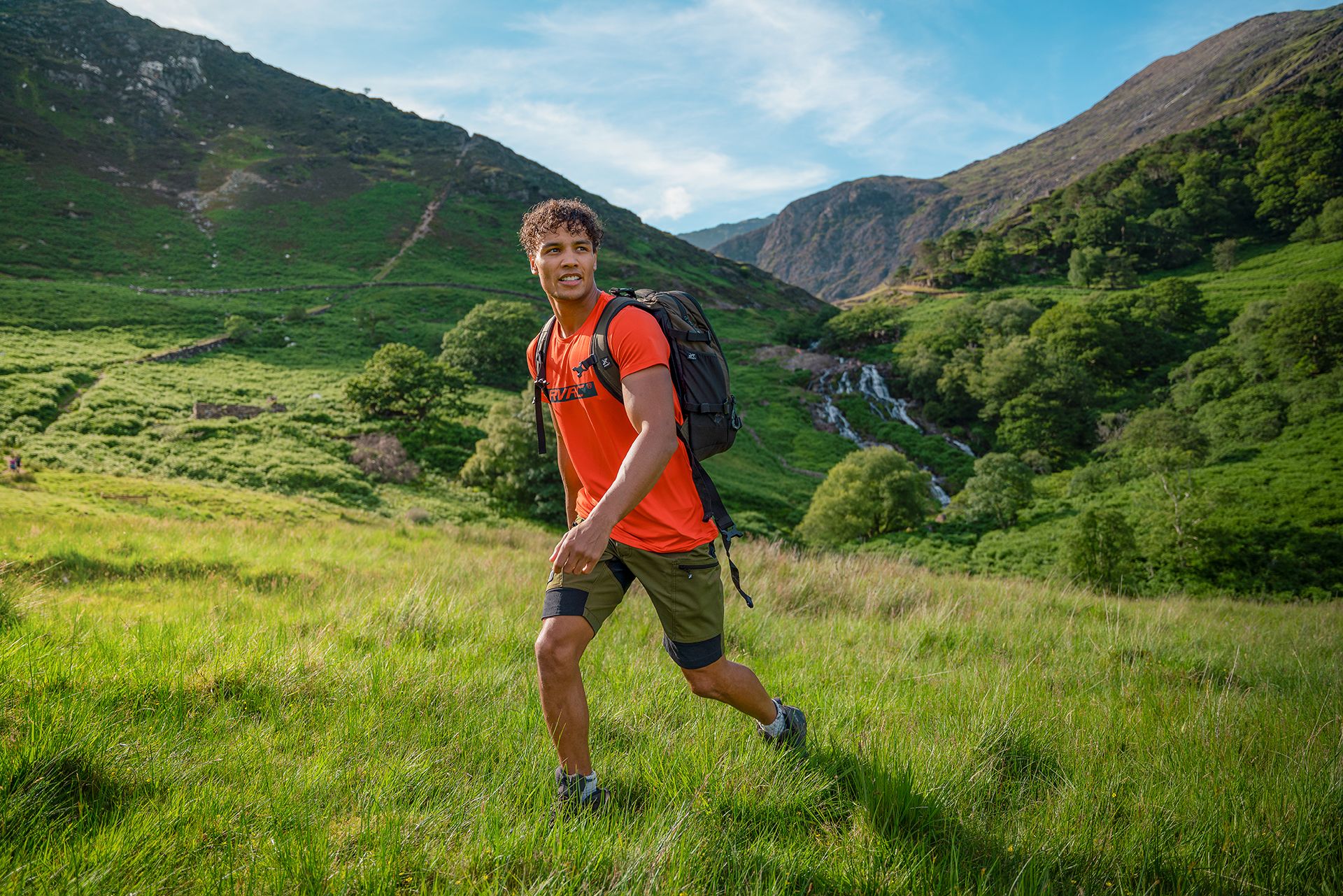Hiking, trekking, mountaineering, and backpacking - what is the difference?
Hiking, trekking, mountaineering, and backpacking are often used to describe similar activities. What they all have in common is that they are used to describe a journey on foot, but although there are some similarities between them, there are also significant differences. The difference often lies in how long they take, how difficult they are and how much technical knowledge, preparation and equipment are needed.

Hiking
going on long walks in nature, often a couple of hours or up to a day in length.
Trekking
longer and more difficult journey on foot that lasts several days or weeks.
Mountaineering
An extreme version of hiking or trekking that includes summiting a mountain.
Backpacking
hiking or trekking that also includes camping where you carry all your camping gear with you in a backpack.
What is hiking?
Hiking is one of the most common outdoor activities since it’s easy to get into and does not have to involve much equipment or skill. A hike is longer and often more strenuous than a regular walk and may include rougher terrain and more inclines. It’s usually done on marked trails, and the route can be looped, out & back or point to point. A hike tends to last for a couple of hours or up to a full day, and you then return home by nightfall. Since it’s longer than a regular walk, you might need to carry supplies and food with you.
But hiking can also be a multi-day event. In this case, most people start from a base camp and go on day hikes in different directions to return to camp at the end of every day. Hiking is also called different things in different countries. In the UK, you often hear it called walking or rambling, while in New Zeeland, it’s called tramping, and in Australia, it’s also known as bushwalking.
What is trekking?
Trekking is longer and harder than hiking. It’s an extended journey on foot, often in more challenging and rougher terrain, making it more physically and mentally demanding than hiking. A trek lasts for several days or weeks and involves camping or staying in shelters, mountain huts or villages along the trail. You carry your gear with you in a backpack, but you might also need to resupply during longer treks. Trekking always involves a destination, and the primary purpose of the trek is the journey. Since it’s longer and more physically demanding than hiking, it requires more preparation and equipment.
What is mountaineering?
Mountaineering can have elements of hiking or trekking, but it’s not the main point of the activity. It’s more challenging and technical, and the primary purpose is to summit a mountain. This may include climbing, skiing, glacier crossings and traversing via ferratas.
Mountaineering is more physically demanding than hiking or trekking, and it requires you to be in excellent physical condition. It’s also more dangerous and involves more technical skills and equipment like a rope, ice axe, crampons, harness, and helmet.
The terrain and the weather can present real hazards for those engaging in mountaineering, and since the primary purpose is to summit a mountain, it often involves high altitudes. Mountaineering, therefore, requires extensive preparations and previous experience.

What is backpacking?
Backpacking can mean different things depending on the context in which it is used. When it comes to outdoor activities, backpacking is a journey on foot for several days or weeks where you carry all your gear in a backpack. Every night you make camp, and you must carry all camping gear and your food supply with you.
In this sense, backpacking and trekking have a lot in common, but a backpacking trip does not have to be a long journey with a destination in mind. It could also be a hike where you carry all your supplies in a backpack, make camp for the night and hike back the next day. Backpacking often means camping outdoors, but you can also stay overnight in mountain huts or shelters along popular trails.
But backpacking can also mean travelling with everything you need in a backpack. In this meaning, backpacking does not have to involve travelling by foot or camping. It could mean travelling by other means like a plane or public transport and staying in hostels or other accommodations.
If you are new to outdoor adventures, read our beginner’s guide to hiking to learn more and get started.

